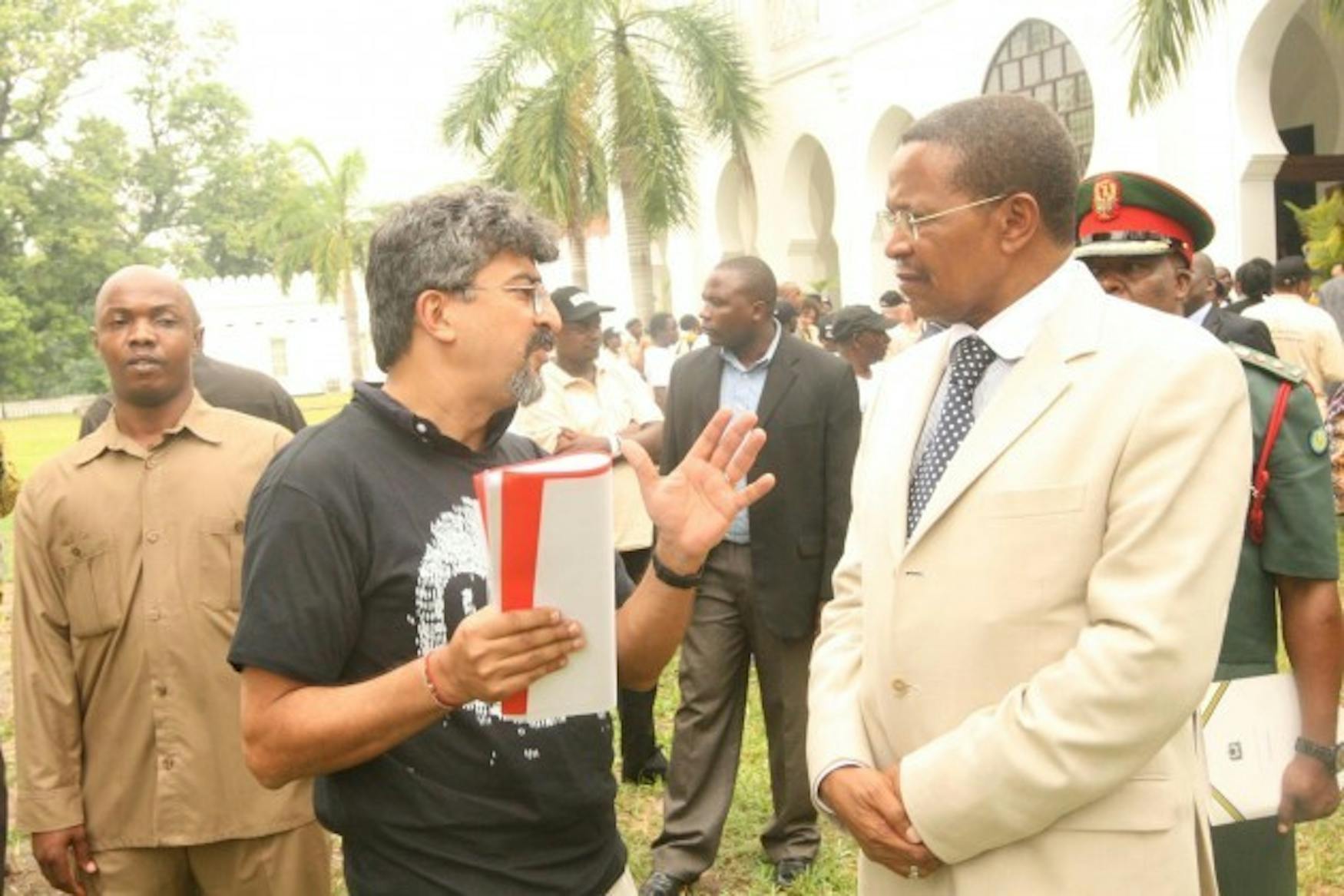Social reform for Tanzania
Rakesh Rajani i89 became a civil society leader of his home country
For Rakesh Rajani '89, access to reliable information is an essential component of human life - on par with access to food and potable water.
Rajani is the head of a civil society organization in Tanzania called Twaweza, a word which means "We can make it happen" in Swahili. Twaweza'smission centers around social services like access to health, education and water.
To increase the flow of information in Tanzania,Twaweza works directly with mass media outlets to try to shape their practices. Rajani encourages them to practice investigative journalism as opposed to what he calls "descriptive journalism."
When asked, Rajani gives the scenario of the president holding a press conference. Descriptive journalists would provide an account of what the president said, whereas investigative journalists would research what he said to hold him accountable, as well as gather commentary from different viewpoints in order to provide a more comprehensive picture.
In addition, he advocates for the presence of a wider variety of voices, in order for the media to be representative of voices beyond the Tanzanian elite.
According to Rajani, the free flow of information is important to societal well-being because it puts citizens in a position where they can assess and question the decisions made by their government. The government makes decisions about the collection and spending of resources that directly affect each citizen, and the free flow of information through mass media outlets is essential to maintaining a transparent and accountable political system.
"If you grew up poor and discriminated against all your life, and you have no way of seeing anything else, then you just get used to it," Rajani said in an interview with the Justice. Twaweza seeks to change this phenomenon by fostering conditions that allow millions of citizens access to media outlets. "Through information, you get to see how other people are living. It allows you to reframeyour own reality, change your aspirations and desire to change the way things are."
Rajani brought to Twaweza years of experience as a civil rights leader. Upon graduating from Harvard University with a masters in liberation theology,Rajani founded his second organization, HakiElimu, meaning "The right to education." The organization is specifically devoted to primary education in Tanzania.
A core problem in Tanzania 15 to 20 years ago was low primary school enrollment. Schools were too expensive, and there were not enough of them.HakiElimu advocated to ensure that kids went to school, and the government responded by building many schools in 2002, expanding educational opportunity as well as reducing the cost of education.
Rajani was pleased with this victory, but remained skeptical that kids were learning despite increased enrollment.
He was interested in the ability of primary school-aged children to read, both in Swahili and in English. Therefore, Rajani led a team of East Africans to visit Pratham, an Indian NGO and established Uwezo, a large scale household survey to assess literacy and numeracy in East Africa.
The survey served as a milestone for the organization as they now had solid evidence showing that seven out of every 10 children in grade three were not able to read at a grade two level.
"We are able to show that there were some districts that were truly disadvantaged, and some that really weren't. We have been able to reframepolicy discussions taking place around these issues," Rajani said.
Most recently, Rajani co-founded the Open Government Partnership in 2011, a project involving 63 countries that provides an international platform from which domestic reformers can advocate for transparency and accountability from their governments. President Barack Obama was a co-founder of OpenGov, and in 2011, Rajani returned to the United States several times to work on this multilateral partnership.
"It's a nice story, because I went to school in the states, I went back to Tanzania and helped there using the skills I had gained in the states, then developed a body of work which then allowed me to return to the U.S. to set up this initiative," Rajanisaid.
Rajani grew up in Mwanza, Tanzania and was able to attend Brandeis through the WienInternational Scholarship Program. This scholarship program provides exceptional international students the opportunity to study at Brandeis for no cost, enriching the community with an international perspective.
At Brandeis, Rajani majored in English and Philosophy and is adamant about the role of creativity and imagination in reaching social goals.
"To me, literature is important because it transports you into all kinds of worlds, it allows you to reflect deeply," Rajani said.
"It allows you to connect, gives you a window into society that then makes you think about your own life and the effect of your own life. Literature has helped me to construct my own view of the world," he said.
"[Brandeis was] a wonderful combination between serious study and serious engagement and activism. We fought hard, there was a lot of demonstrating," Rajani said. Rajani was a student at Brandeis during the height of the Cold War, before the fall of the Berlin Wall.
"The kind of values that Justice Brandeis stood for infused the faculty's thinking, which then infused our thinking," Rajani said. "I learned about what matters in the world, about how to live a meaningful life, how to live a life that is engaged in caring about things."
Corrections Appended:
Twaweza is a civil society organization, not a human rights organization
Twaweza does not provide access to basic resources but instead provides social services
HakiElimu was the second organization Rajanifounded, not the first.



Please note All comments are eligible for publication in The Justice.